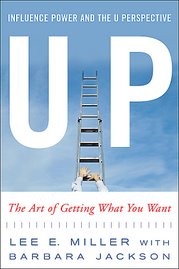Before John Yocca found his current job, he had been unemployed for seven months. Unexpectedly laid off as part of a major downsizing, Yocca took some time off trying to figure out what he wanted to do.
Now a senior account executive with Stern and Associates in Cranford, Yocca eventually found temporary work in the golf industry, a passion of his, and began exploring the possibility of working full time in the field. After a while, though, Yocca got discouraged and decided to go back to what he knew best. So, he reached out to a recruiter he had worked with in the past.
By coincidence, the recruiter was working on a search for which he was particularly well-qualified. Within a day, Yocca had an interview; a week later, he had a job. In hindsight, Yocca says he wishes he had pursued his job search more diligently and reached out to his network much earlier.
With the economy losing 80,000 jobs in March, the third consecutive month of rising unemployment, many more people are likely to be facing a period of unemployment in the coming months. Some of those affected may find themselves out of work for an extended period of time. Should you find yourself among the casualties of what will hopefully be a brief economic downturn, avoid the common mistakes that can unnecessarily lengthen the time you look for work.
The most common problem for individuals who have been looking for a job for an extended period of time is "they get discouraged and lose their confidence," said Julie Kampf, president of JBK Associates, an executive recruiting firm in Engelwood. This can lead them to interview poorly and make bad decisions, such as accepting the wrong job out of fear nothing else will come along.
Here are some mistakes to avoid during a job search:
"Objects in motion tend to stay in motion, while objects at rest tend to stay at rest, unless acted upon by an external force," says Newton's First Law of Motion. When it comes to finding a job, a similar principle comes into play. Employers are interested in people who are active and involved. They want to know you are positive, motivated and energetic. They are looking for someone who has been busy, even while engaged in a job search.
So while you are looking, take courses that will enhance your skills, get involved in professional organizations and engage in volunteer work. This will not only expand your network, but will demonstrate you have been productive during the time you have been out of work. Consulting or freelance work also can be a plus, as long as it doesn't keep you from focusing on your primary objective of finding a job.
The biggest mistake you can make when you are unemployed is to "rely on someone else to find you a job," Kampf says. People in your network, career coaches all can help you. They can offer ideas, provide leads and give you advice, but ultimately, you have to take responsibility for your own job search.
A veteran human resources executive, Lee E. Miller is the author of "UP: Influence Power and the U Perspective -- The Art of Getting What You Want," and the co-founder of YourCareerDoctors.com, a website devoted to career success. Mail questions to Lee@YourCareerDoctors.com.


No comments:
Post a Comment